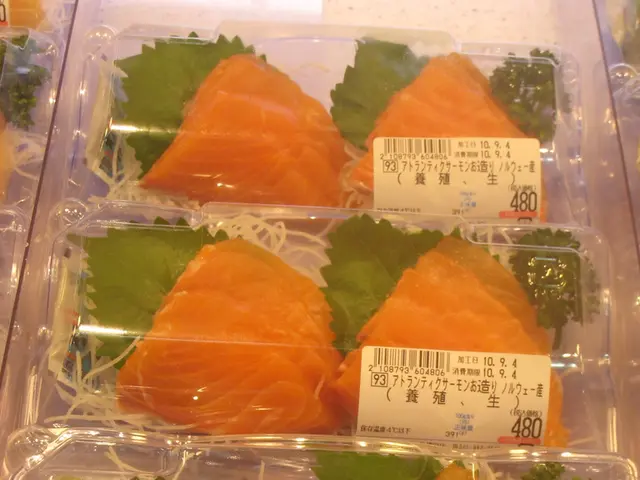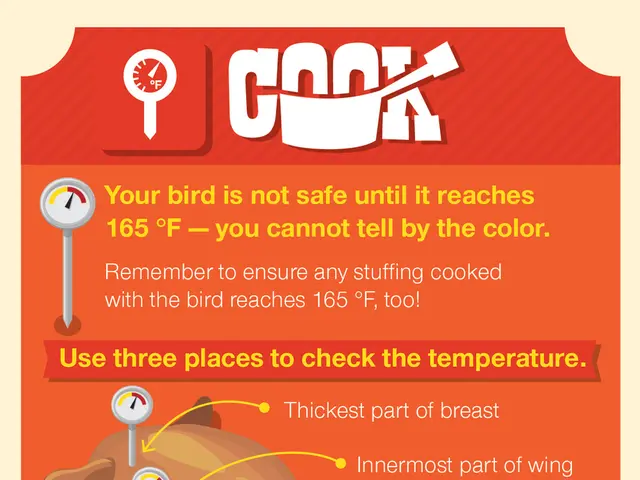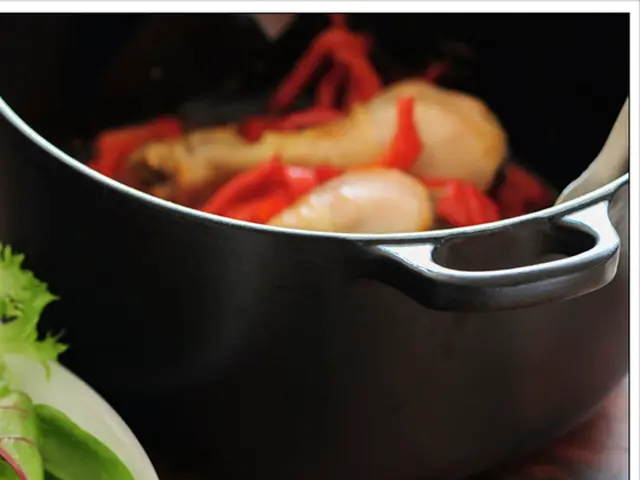Saturate Yourself: Top 10 Foods That Ensure Adequate Hydration
Incorporating a Variety of Hydrating Foods for Optimal Health
Adequate hydration is essential for maintaining proper body function, and while water is the primary source of fluid, several high-water content foods can also contribute significantly to your daily intake. Registered dietitian Julia Zumpano, RD, LD, discusses these foods, which can help keep you hydrated and offer additional health benefits.
Hydration is crucial for several reasons, including improved brain function, efficient nutrient transport, waste removal, joint lubrication, and optimal physical performance. Dehydration, even mild, can lead to a range of problems, such as confusion, dizziness, cramping, and headaches. In extreme cases, dehydration can lead to serious health complications.
To maintain adequate hydration, the Academy of Nutrition and Dietetics recommends daily fluid intake of 124 ounces (15.5 cups) for men and 92 ounces (11.5 cups) for women, primarily from liquid sources, though food can also contribute to your overall intake. Factors like physical activity, warmer temperatures, and illness can increase fluid loss and thus, the need for hydration.
When it comes to hydrating foods, certain produce items stand out due to their high water content. These include:
- Cucumbers: This green garden gourd is made up of over 96% water and is a standout hydrating food. Cucumbers are also nutritious, offering body-boosting antioxidants, vitamin K, and a range of essential nutrients that promote bone health.
- Celery: Containing around 95% water, celery offers a satisfying crunch and a healthy dose of fluid. It's also packed with electrolytes like magnesium and potassium.
- Lettuce: From iceberg to romaine and butterhead varieties, different types of lettuce are mostly water and can help to moisten meals while keeping calorie counts low.
- Tomatoes: Rich in water and essential nutrients like vitamin C and potassium, tomatoes also provide anti-inflammatory benefits and may help reduce the risk of heart disease.
- Watermelon: With approximately 92% water, watermelon is refreshing and delicious, making it an excellent choice for warm weather. It's also rich in antioxidants like lycopene and beneficial amino acids.
- Zucchini: Slightly less water-dense than cucumbers but still nearly 95% water, zucchini is a versatile summer squash that boasts numerous health benefits, including antioxidants like beta-carotene, lutein, and zeaxanthin.
- Cauliflower: At around 92% water, cauliflower is surprisingly hydrating and packed with vitamins like C and K. It's also esteemed for its potential cancer-fighting properties.
- Bell Peppers: Bell peppers are usually more than 92% water, offering excellent hydration along with a range of vitamins and minerals.
- Asparagus: Asparagus contains around 92% water, and its antioxidants and enzymes may help with hangover recovery.
- Strawberries: These juicy fruits contain over 90% water, making them a hydrating choice while also offering antioxidants like vitamin C and compounds associated with improved cognitive function.
Incorporating these high-water content foods into your diet can help maintain hydration levels, especially during warm weather or physical activity. The hydrating properties of these fruits and vegetables, combined with essential electrolytes and nutrients, can serve as an effective alternative to plain water.
- Adequate hydration, obtained from both water and hydrating foods, is crucial for maintaining proper body function and minimizing health risks.
- Registered dietitian Julia Zumpano highlights several high-water content foods that contribute significantly to daily hydration requirements, offering additional health benefits.
- Some of these hydrating foods include cucumbers, celery, lettuce, tomatoes, watermelon, zucchini, cauliflower, bell peppers, asparagus, and strawberries, which are rich in essential nutrients and antioxidants.
- By incorporating these foods into your diet, you can achieve optimal hydration levels, especially during warm weather or physical activity, while also taking advantage of their numerous health benefits.
- An active lifestyle and global-cuisines can provide opportunities to experiment with healthy cooking methods and discover new nutritious food-and-drink options for boosting health and lifestyle.
- Practicing a balanced lifestyle that includes fitness-and-exercise, nutrition, and healthy-cooking can contribute to overall health-and-wellness, promoting efficient nutrient transport, waste removal, and better joint lubrication, leading to improved physical performance.








